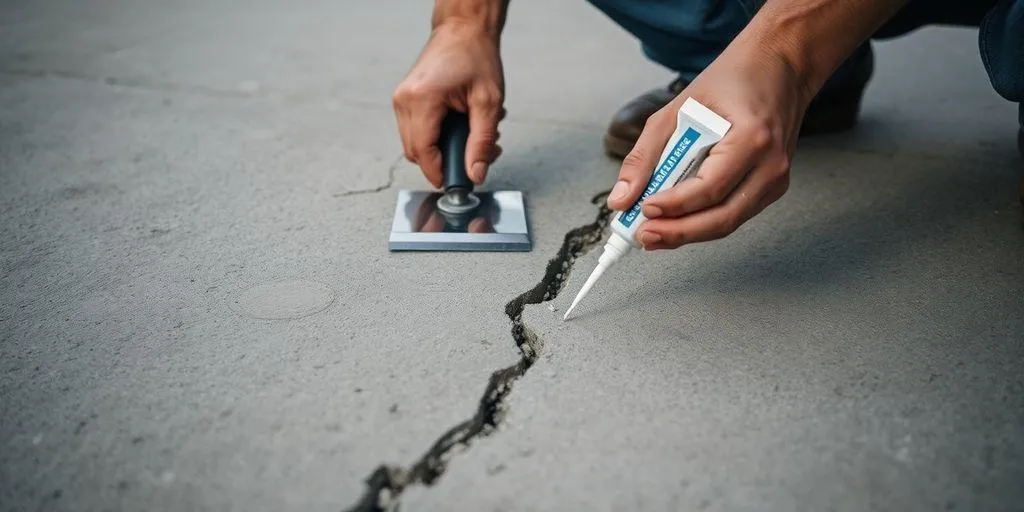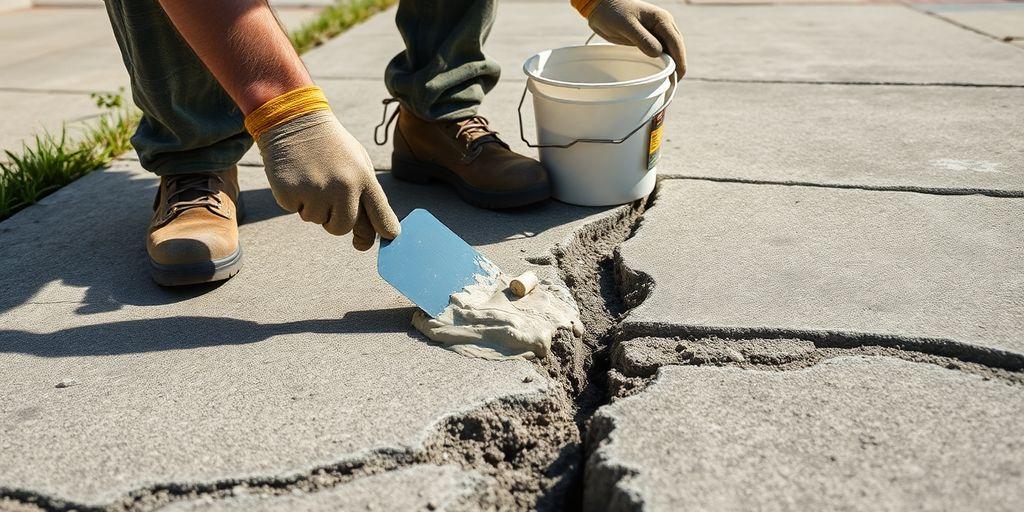Concrete Montréal
Expert Techniques for Effective Concrete Crack Repair in Montreal
Master concrete crack repair in Montreal with expert techniques and preventative measures for lasting results.
Fixing concrete cracks in Montreal isn't just about making things look nice. It's about keeping your place safe from bigger problems. With Montreal's weather and ground issues, dealing with cracks is a must. Knowing what causes these cracks and how to fix them can save you a lot of trouble down the road. Let's dive into some expert ways to handle concrete crack repair in Montreal.
Key Takeaways
. Montreal's unique climate and soil conditions make concrete crack repair essential to maintain structural integrity.
. Advanced techniques like polyurethane and epoxy injections are effective for different types of cracks.
. Choosing skilled professionals ensures the repair is done correctly, preventing future issues.
Understanding the Causes of Concrete Cracks in Montreal

Impact of Montreal's Climate on Concrete
Montreal's weather is a real rollercoaster, isn't it? We get everything from scorching summers to bone-chilling winters. This extreme weather can be brutal on concrete. Temperature swings cause the concrete to expand and contract, leading to cracks over time. And let's not forget about the freeze-thaw cycles. When water seeps into tiny cracks and freezes, it expands, making those cracks bigger. It's like nature's way of keeping us on our toes!
Common Structural Issues Leading to Cracks
Sometimes, the problem isn't just the weather. Structural issues can also play a big role. Poor construction practices, such as inadequate reinforcement or improper curing, can weaken the concrete. Over time, these weaknesses show up as cracks. Think about it like this: if the foundation isn't solid, everything else is bound to fall apart eventually. It’s crucial to ensure that the initial construction is done right to prevent these problems.
Role of Soil Subsidence in Crack Formation
Then there's soil subsidence, which is basically the ground settling under your concrete. In Montreal, this can happen because of the type of soil we have or due to water drainage issues. When the ground shifts, it can cause the concrete to crack. Imagine trying to build a house on a shaky foundation. Not ideal, right? To tackle this, we need to address any drainage problems and ensure the soil is stable before laying down concrete.
It's clear that understanding the causes of concrete cracks is essential for effective repair. By addressing issues like climate impact, structural integrity, and soil stability, we can take the right steps to maintain the durability of our concrete structures.
Advanced Techniques for Concrete Crack Repair in Montreal

High-Pressure Polyurethane Injection
So, let's talk about high-pressure polyurethane injection. This method is pretty fantastic for sealing those stubborn cracks. We inject polyurethane into the crack under high pressure, and as it cures, it expands to fill every nook and cranny. This technique is particularly effective for sealing off water paths, making it a go-to for waterproofing. It's a flexible solution that works wonders for cracks up to 1 mm wide. Plus, it's a great choice for both interior and exterior repairs.
Epoxy Injection for Structural Integrity
When it comes to structural integrity, epoxy injection is the way to go. Unlike polyurethane, epoxy is all about strength. It's used to bond cracks in concrete, restoring the original strength of the structure. This method is ideal for fixing cracks in foundations, beams, and columns. We usually recommend this for structural cracks, where maintaining strength is crucial.
Use of Elastomeric Waterproof Membranes
Elastomeric waterproof membranes are another advanced technique we use. These membranes are applied to the exterior of a structure to prevent water infiltration. They're flexible, durable, and can handle the freeze-thaw cycles typical of Montreal's climate. Applying these membranes requires excavation, but the payoff is a long-lasting barrier against moisture.
In Montreal, dealing with concrete cracks isn't just about fixing what's broken. It's about choosing the right method to ensure durability and peace of mind. With these advanced techniques, we aim to provide solutions that stand the test of time, keeping your structures safe and sound.
Choosing the Right Professional for Concrete Crack Repair

Evaluating Experience and Expertise
When it comes to fixing concrete cracks, experience truly matters. We know it's tempting to go for the cheapest option, but think about it: would you trust someone fresh out of school to fix your car? Probably not. The same logic applies here. We should look for professionals who've been in the game for a while. Those who've seen all kinds of cracks and know exactly what to do. A seasoned pro will have a portfolio of past projects and probably a list of happy clients. Don't be shy; ask about their experience, the types of cracks they've dealt with, and any special training they might have.
Importance of Certified Repair Services
Certification can be a game-changer. It tells us that the professional has met certain standards and knows their stuff. Think of it as a stamp of approval. In the world of concrete repair, certifications might include specific training on the latest repair techniques or safety standards. A certified service is more likely to use high-quality materials and follow best practices, which means fewer headaches for us down the line. So, let's not overlook this when choosing who to hire.
Customer Reviews and Testimonials
Before we hire anyone, checking out reviews and testimonials is a must. It's like getting a sneak peek into what we can expect. Are past clients satisfied? Did the repairs hold up over time? Was the team punctual and professional? These insights can be found in online reviews or by asking the contractor for references. A few negative reviews aren't necessarily a deal-breaker, but if there are consistent complaints, it might be time to look elsewhere.
Choosing the right professional for concrete crack repair isn't just about fixing the problem; it's about ensuring long-term peace of mind. Let's take the time to do our homework and pick someone who'll get it right the first time.
Preventative Measures to Avoid Future Concrete Cracks
Regular Maintenance and Inspection
We can't stress enough how important it is to keep an eye on your concrete surfaces. Regular check-ups can catch minor issues before they become big headaches. It's like going to the dentist—better to find a small cavity than deal with a root canal, right? We should regularly walk around our property, looking for any signs of wear and tear. If we spot anything unusual, like small cracks or uneven surfaces, it's time to call in a pro for a closer look.
Proper Drainage Solutions
Water is concrete's worst enemy. Ensuring proper drainage around your home can save you a lot of trouble. We need to make sure that rainwater and other sources of moisture are directed away from our concrete surfaces. This might mean installing gutters, downspouts, or even French drains to keep water at bay. Moisture can seep into cracks and freeze, expanding and causing even more damage. So, let's keep our concrete dry and happy!
Use of Quality Construction Materials
When it comes to concrete, not all materials are created equal. Using high-quality materials from the get-go can prevent a lot of issues down the line. We should always opt for the best concrete mixes available and ensure that any additives used are up to par. This might cost a bit more upfront, but it will pay off in the long run by reducing the need for repairs. Think of it as an investment in the longevity of our property.
Taking these preventative steps now can save us from costly repairs and ensure our concrete remains in top condition for years to come.
